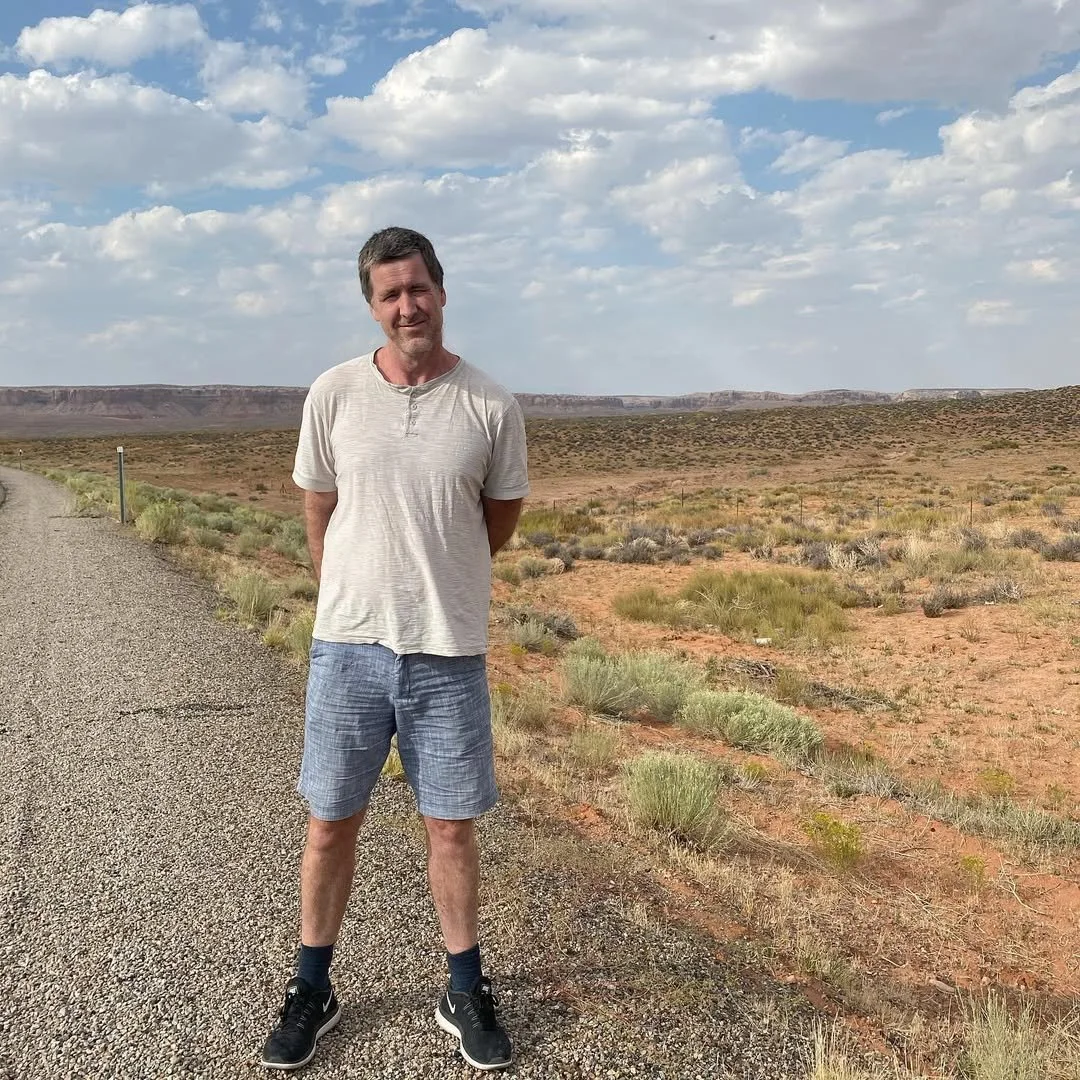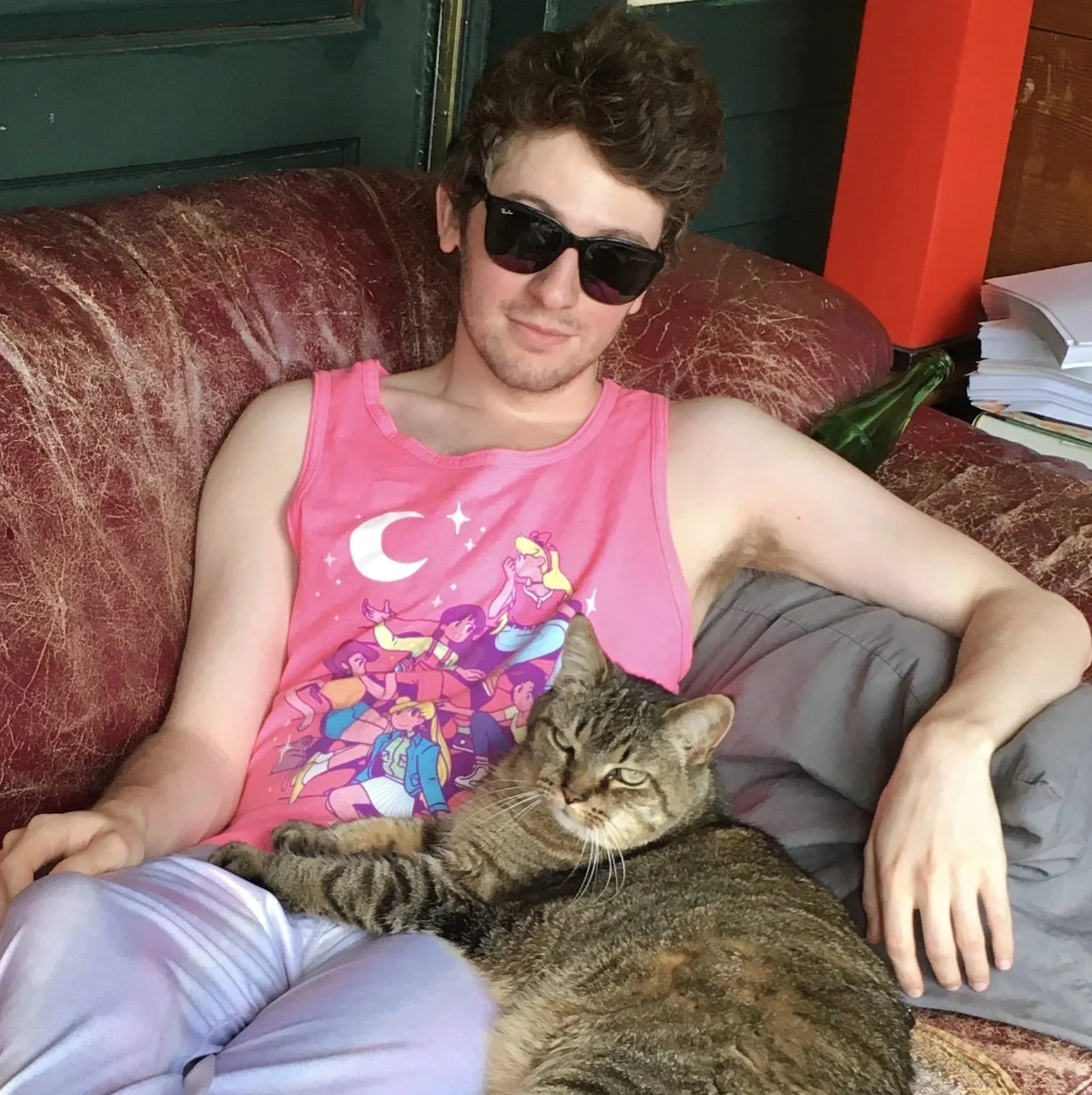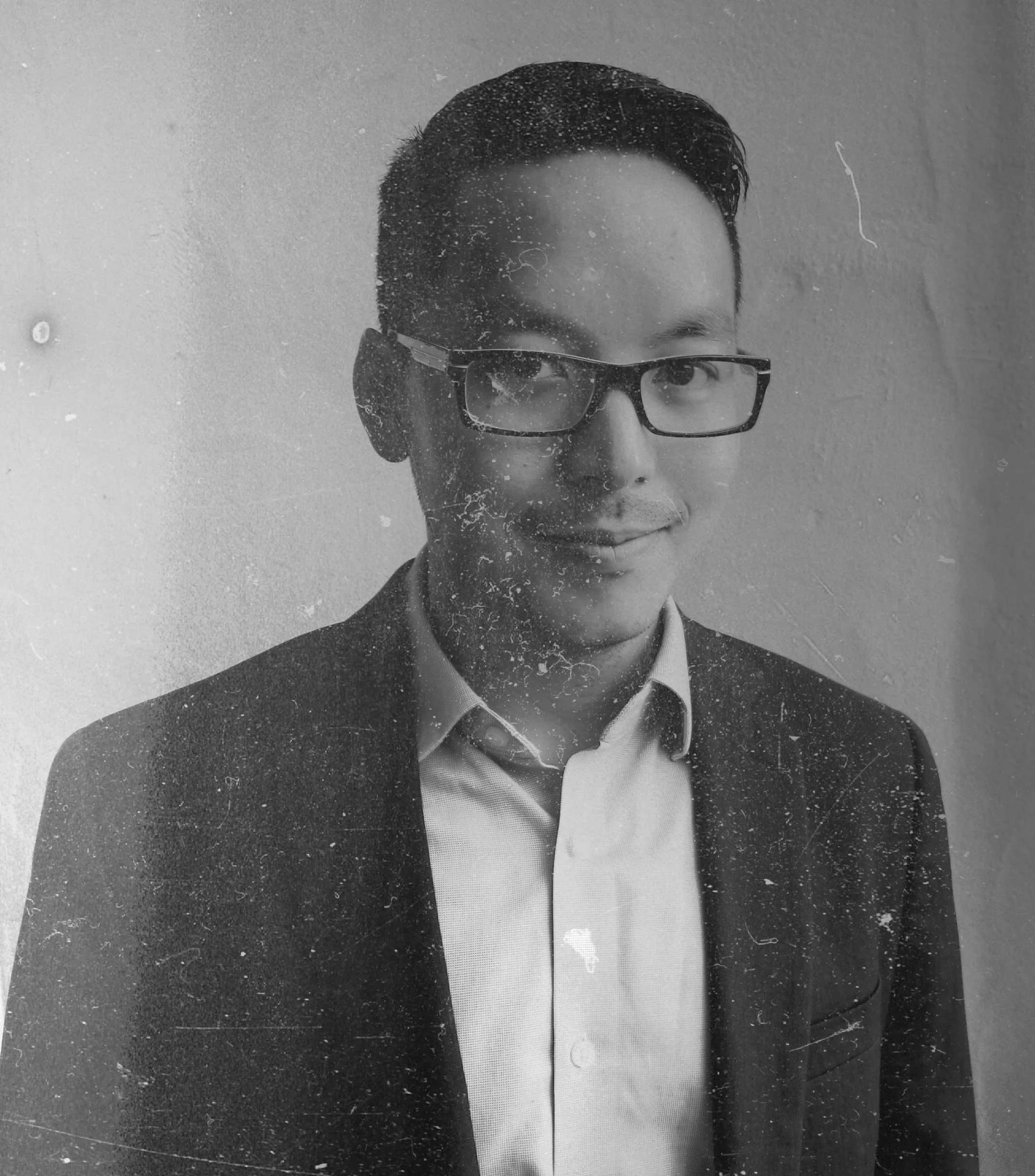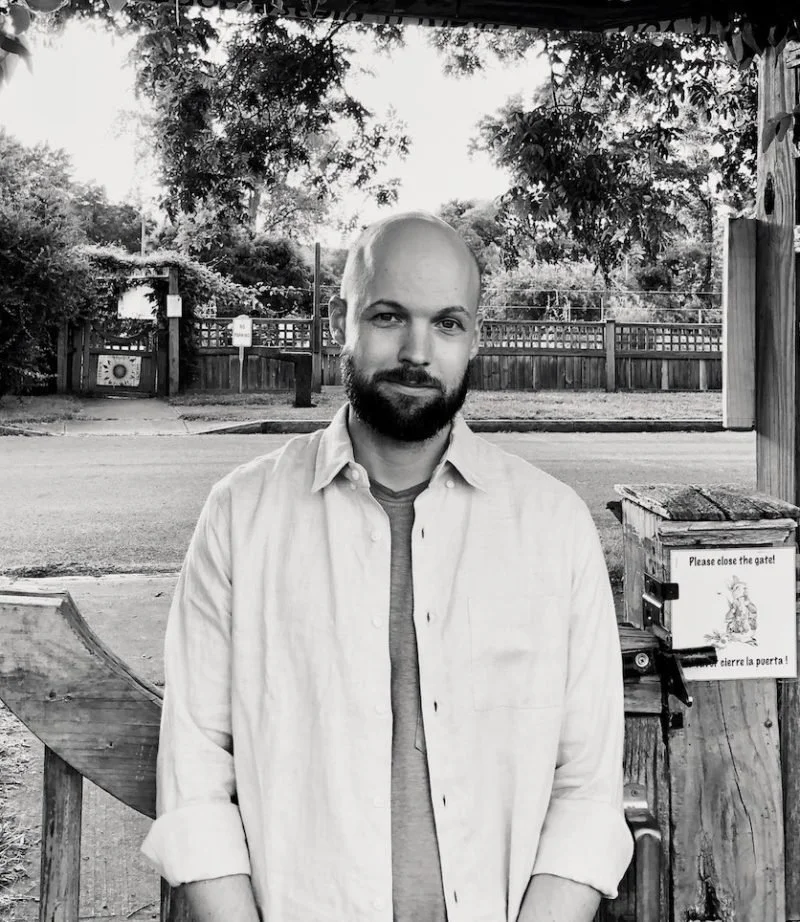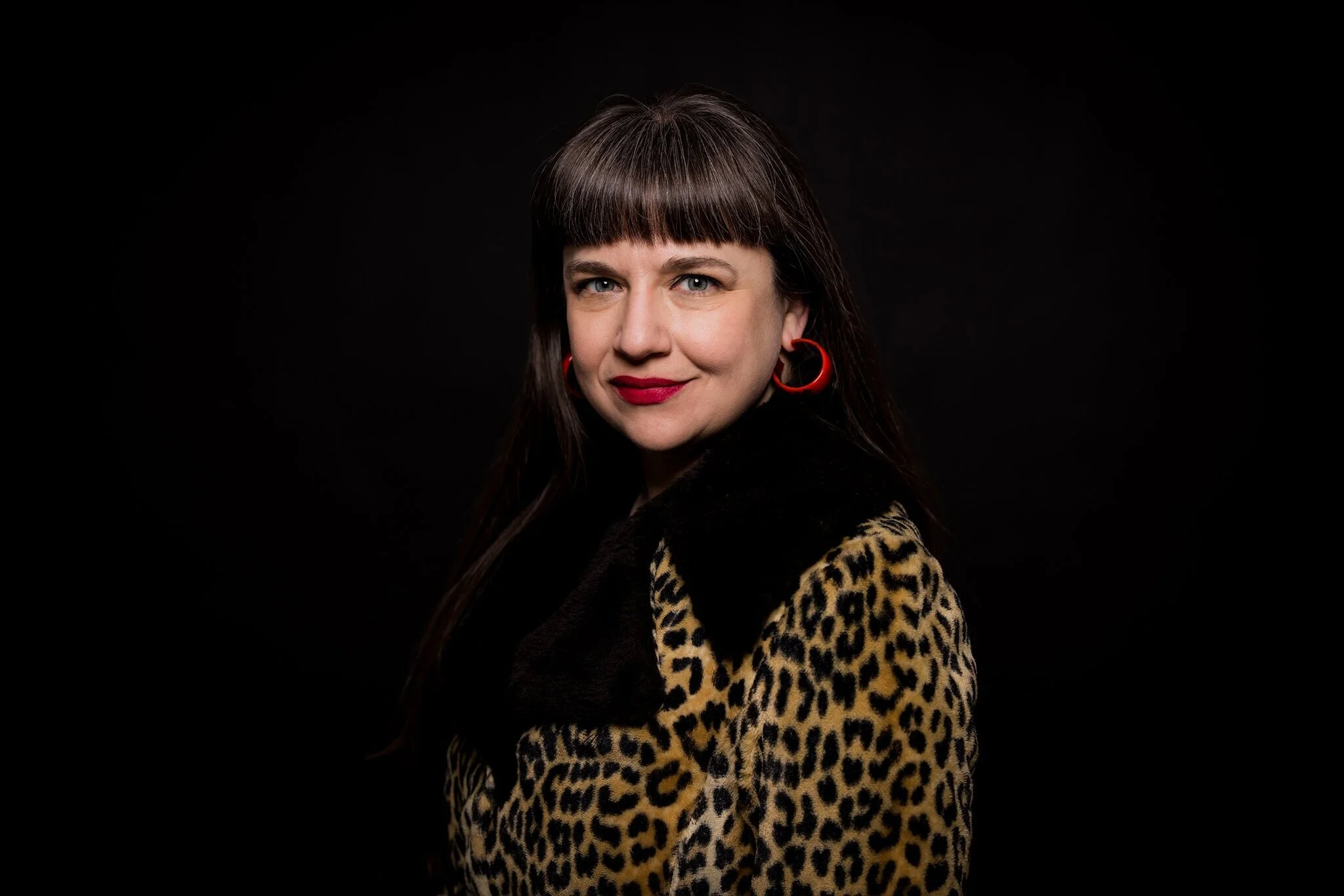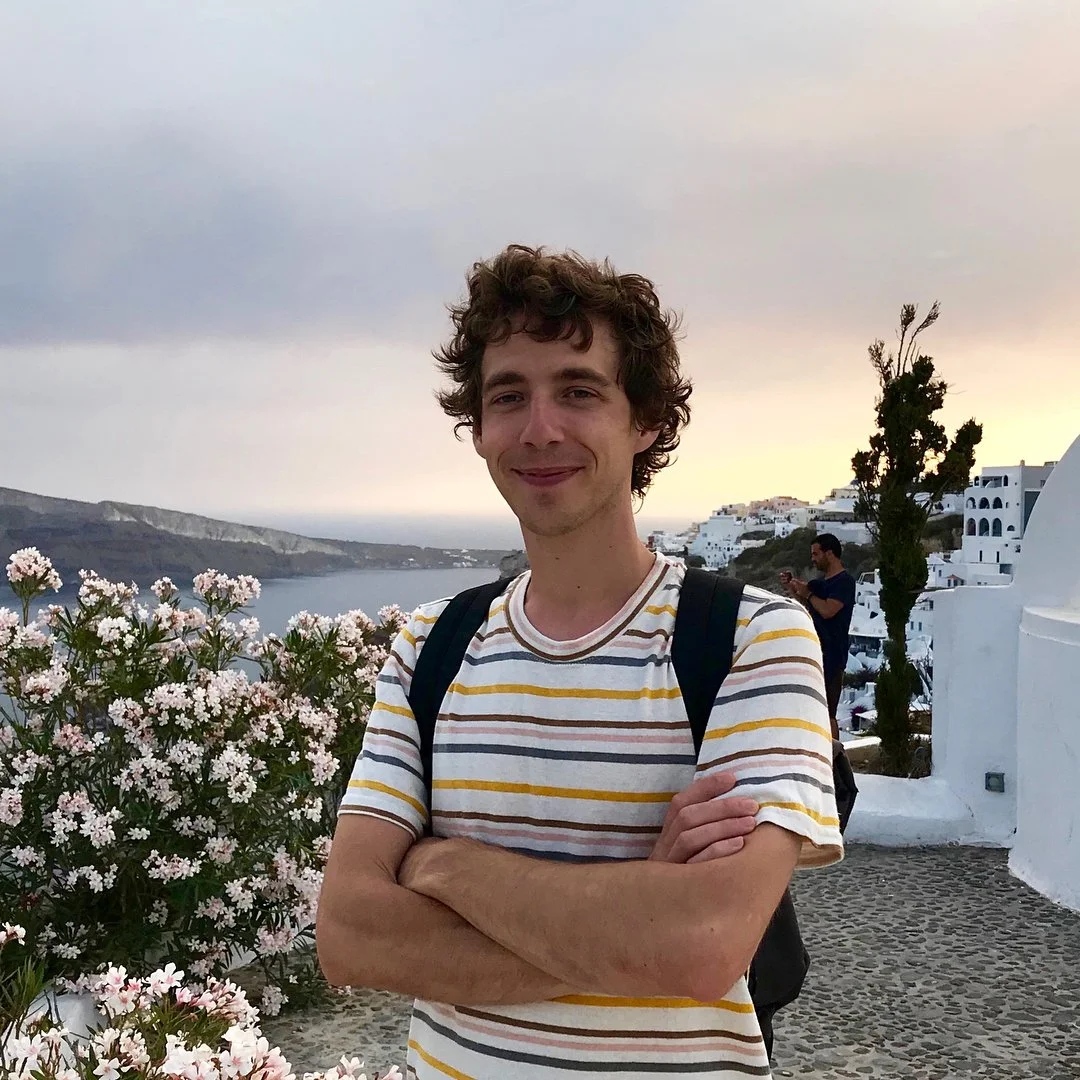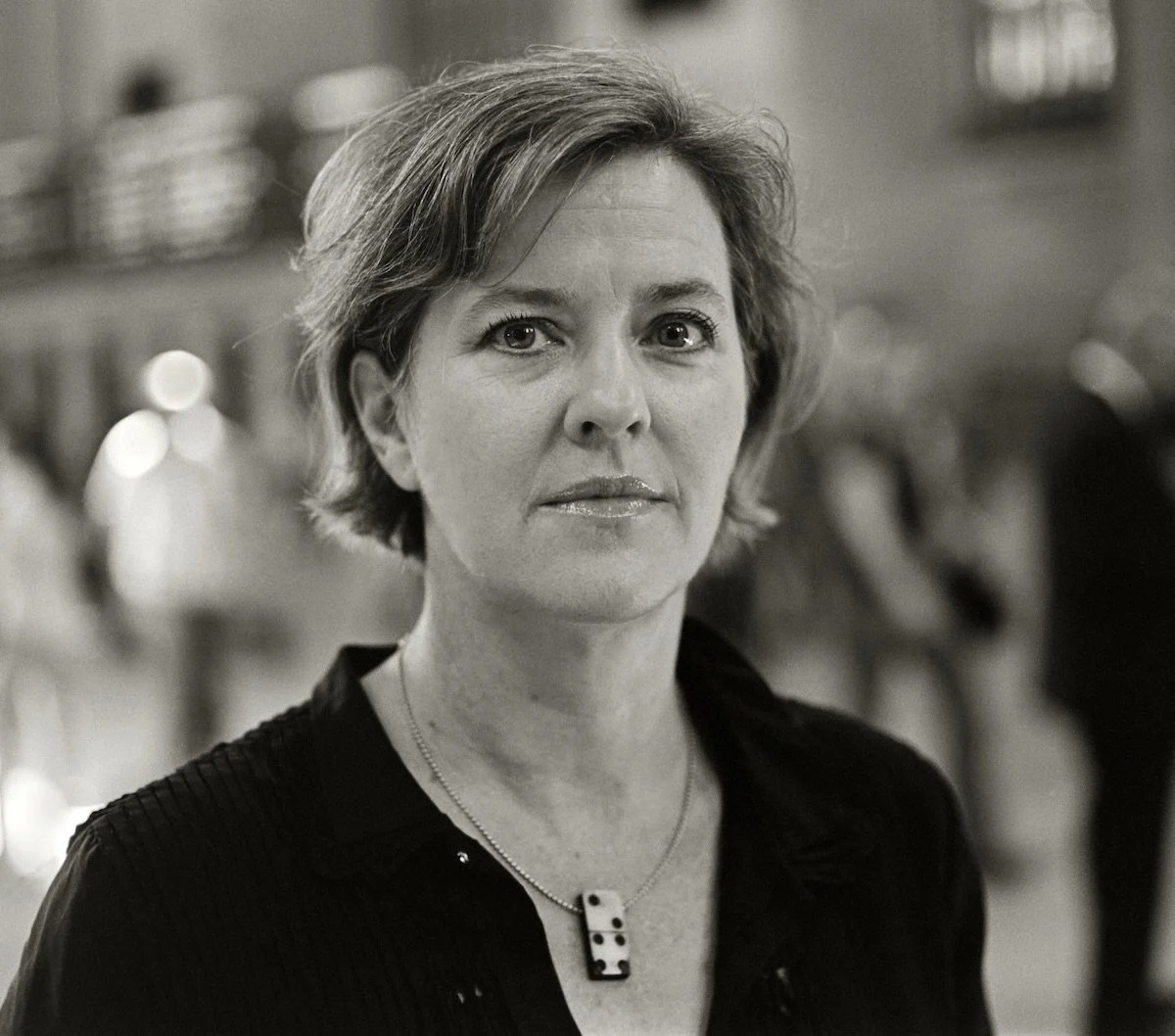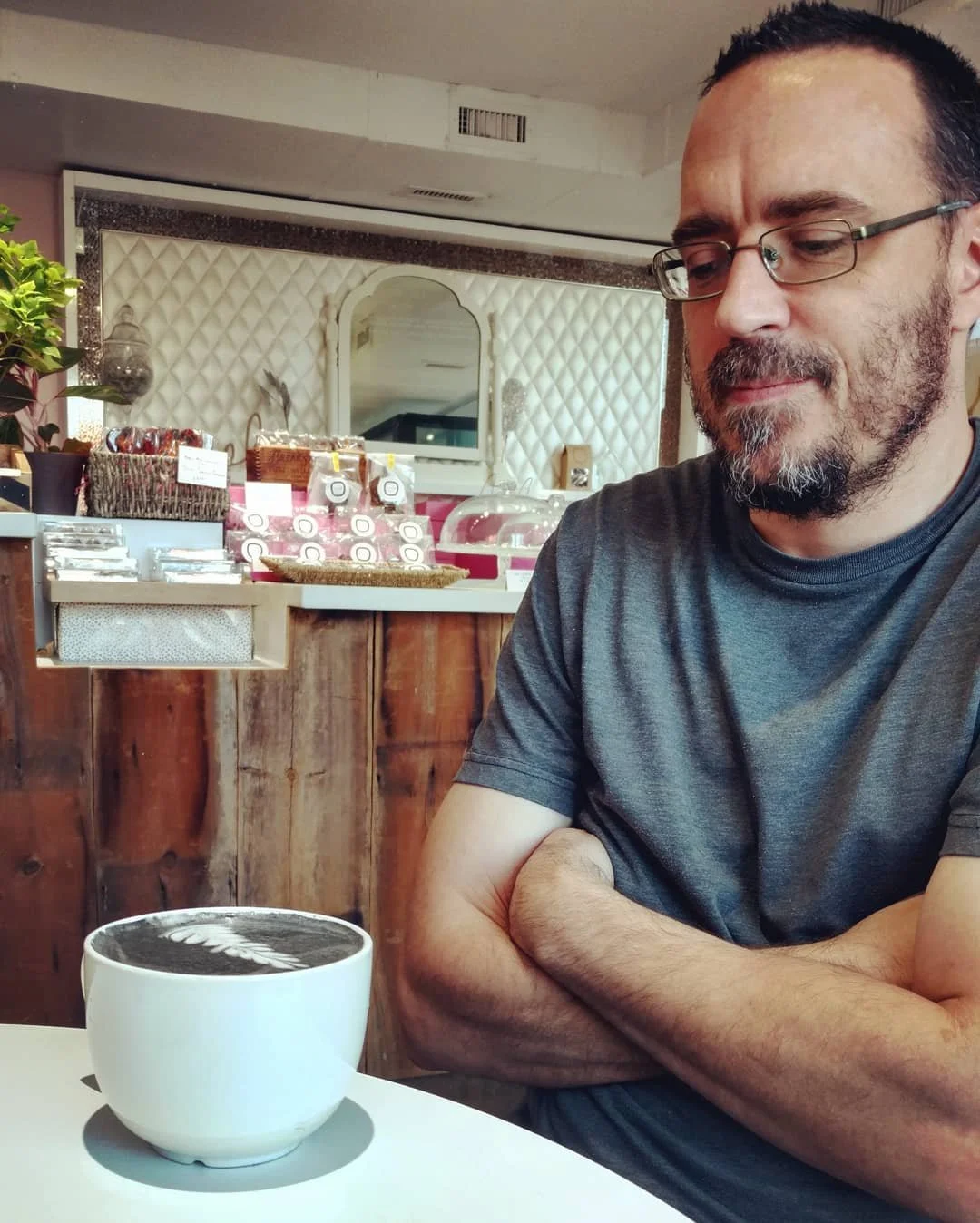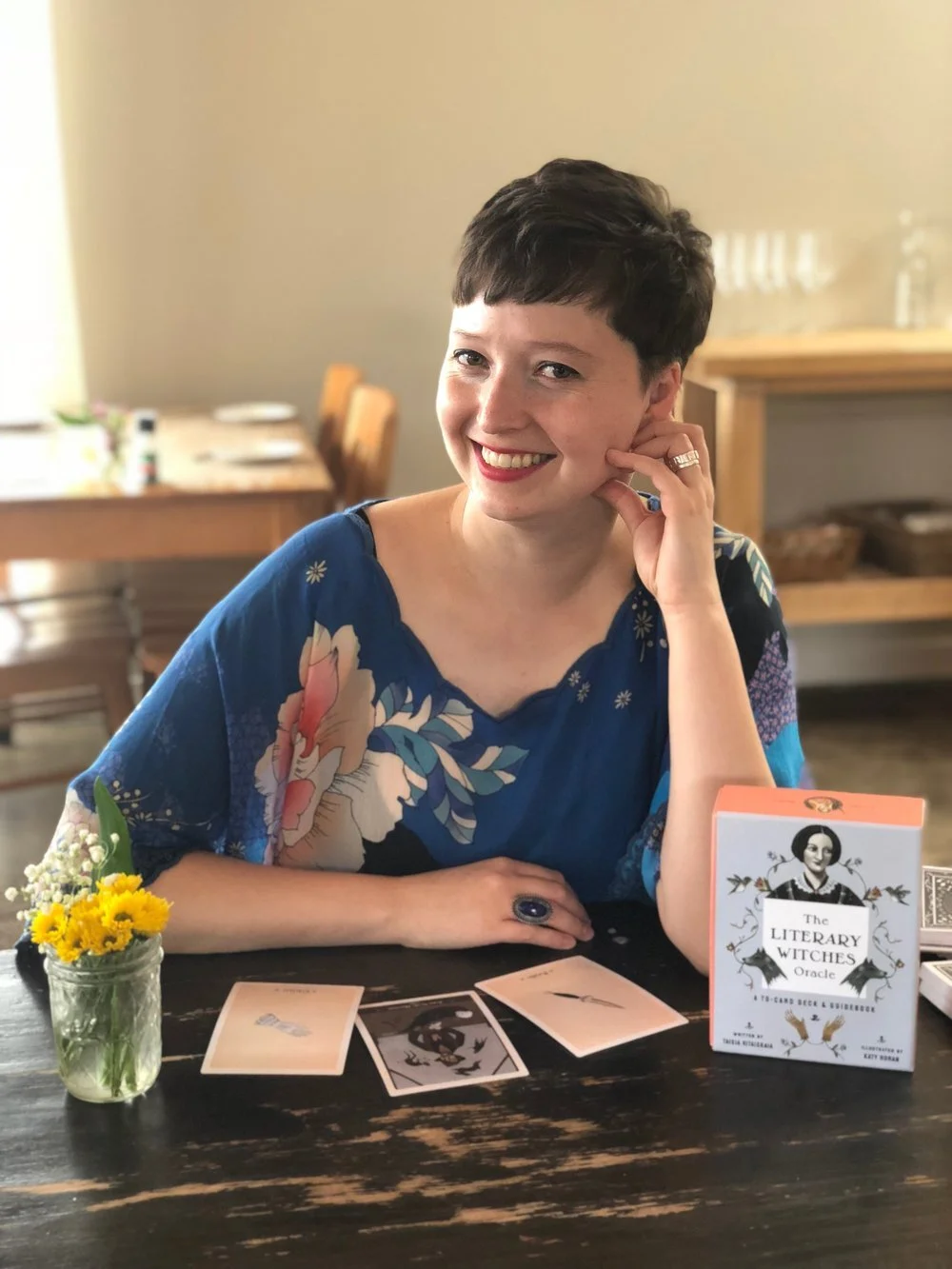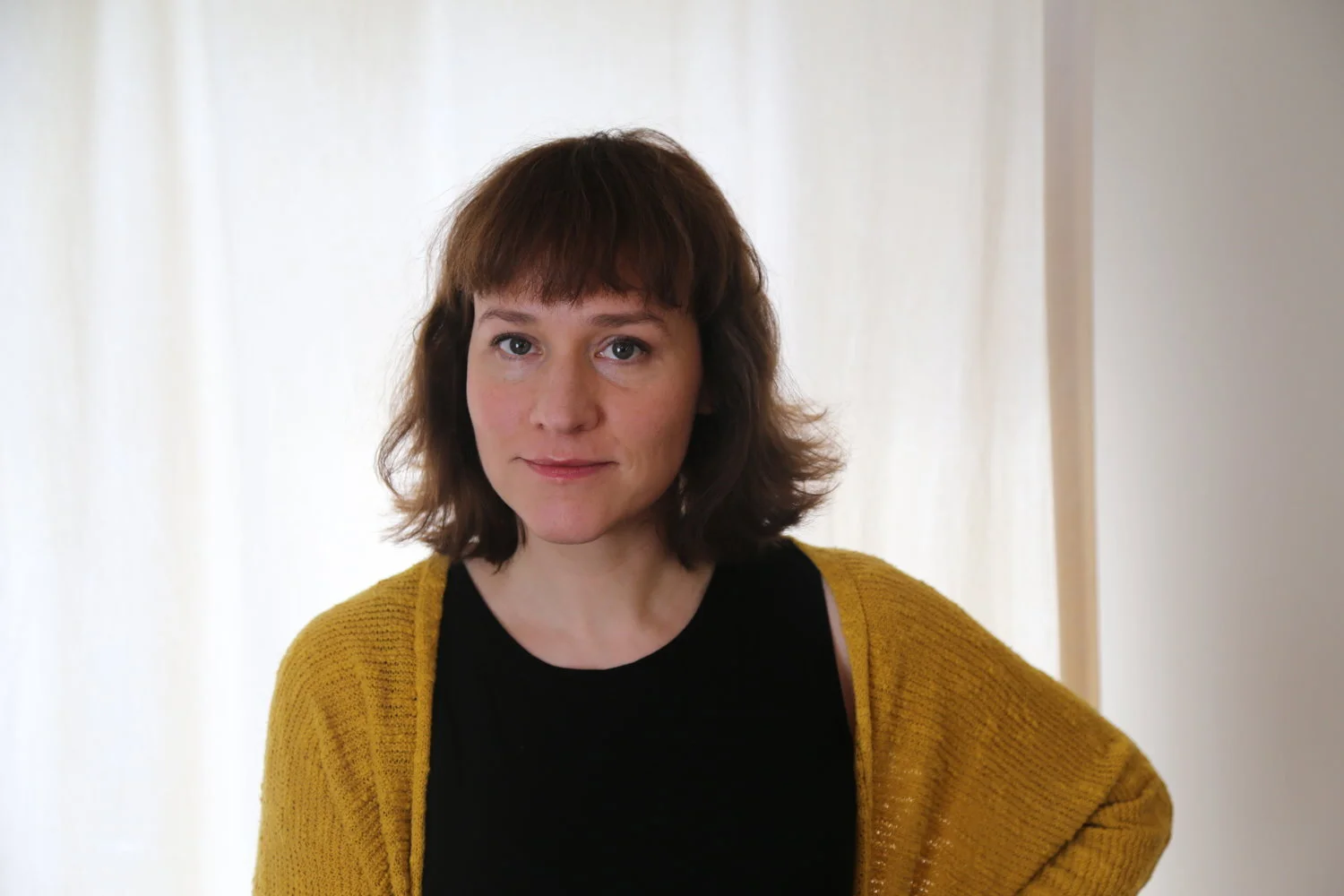Rick Bursky is a jack of all trades. His inviting website explains it all: Ad Guy, Poet, Writer, Photographer, Fountain Pen Aficionado, and Ex-Adventurer. The author released his debut book of poetry in 2004 (The Soup of Something Missing, Bear Star Press) and has gone on to release two more stand-out collections: Death Obscura through Sarabande Books (2010) and I'm No Longer Troubled by the Extravagance through BOA Editions (2015). His poetry is humorous, endearing, dancing with the surreal. Burksy often kickstarts his pieces with gripping lines of magic like, "An old man and woman live inside my heart" or "A surgeon sold hearts he carved from oak" before returning to reality with touching insight. With another book in the works and plenty of wisdom to share, the former SCUBA diver and pilot answered a few of my questions and talked about his ever-expanding collection of 127 fountain pens.
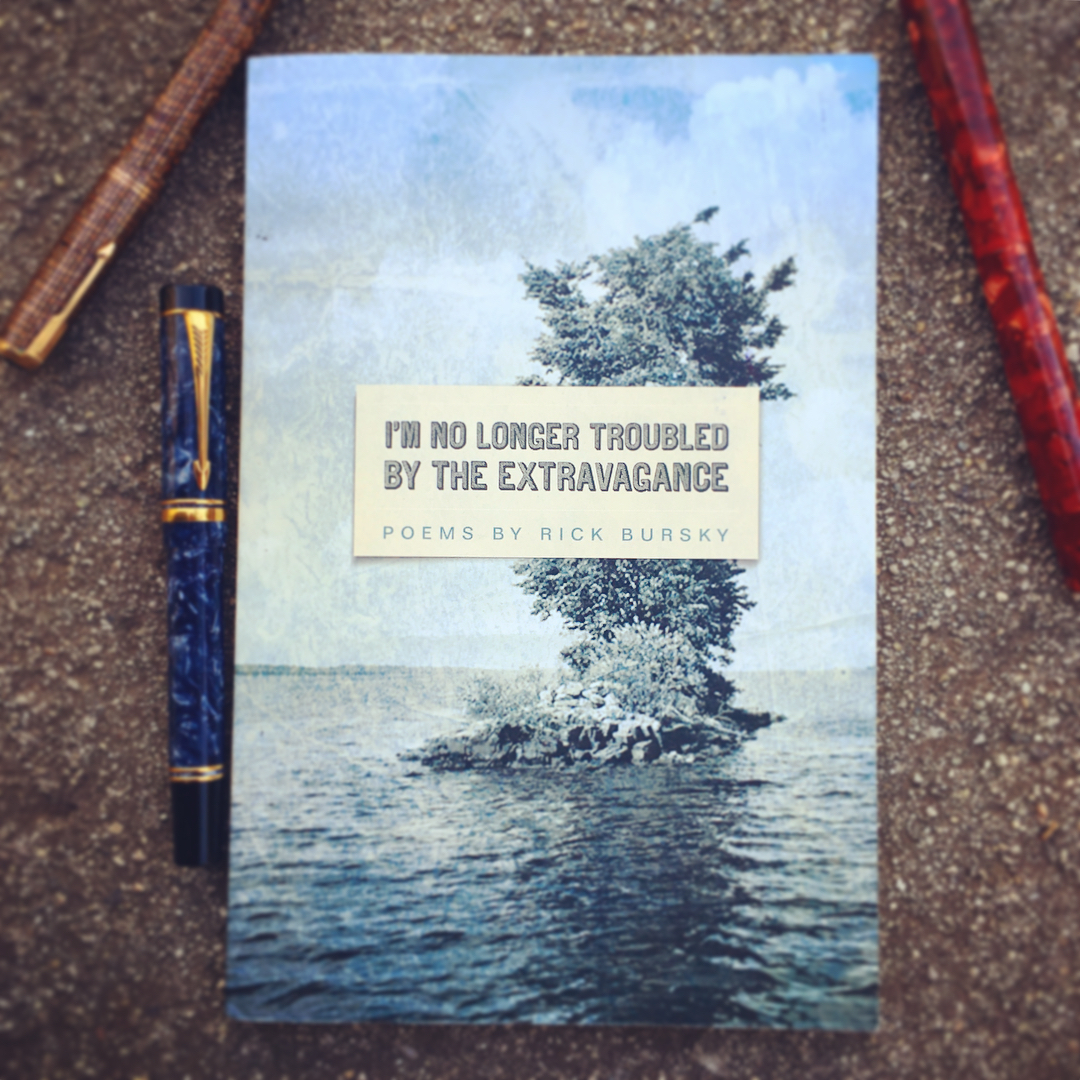
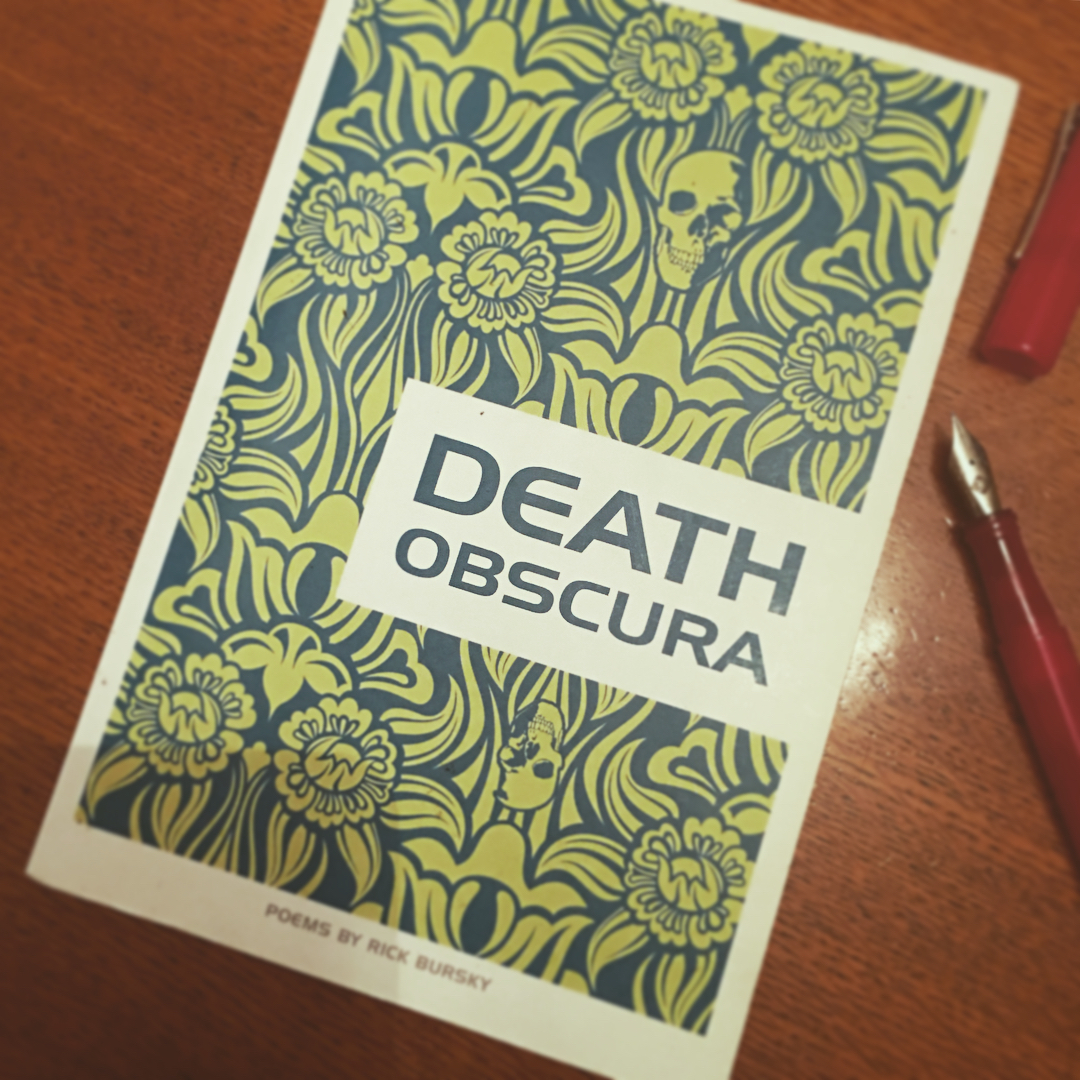
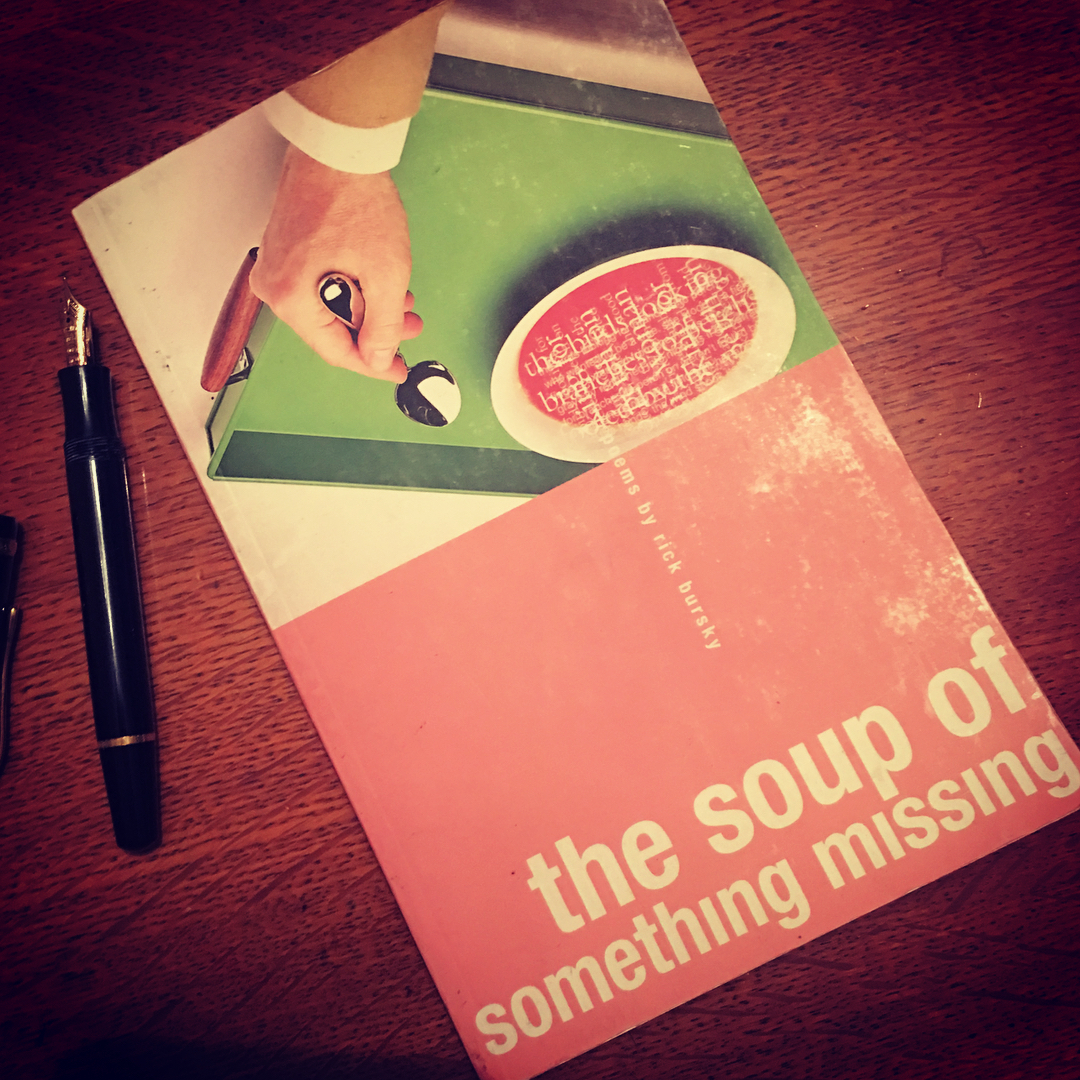
Let us begin with a curveball question. You're stranded on a desert isle and you get to choose one sea creature (living/extinct/mythological) to latch onto and guide you to safety. Choose wisely.
The Loch Ness Monster. Hmm, is a fresh-water creature allowed? Okay, a great white shark. With him on my side others won’t mess with me. No, no, better yet, killer whale. Is a nuclear submarine a sea creature?
Now that we got that out of our system, how has 2018 been treating you so far?
Hmm, so far so good. But it’s still early in the year, plenty of time for a collection of disasters to land on my head and wash me out to sea. I’m not being pessimistic, I just don’t want to be caught unprepared. Each time a new year starts I think to myself, this will be the year for something great, but one year is pretty much like the last. In the end, I resolve to work harder at one thing or another. I’m rambling. I don’t like this question.
What are you currently working on?
I continually write the same way I always have. I open my notebook and start to scribble. Over the years, I’ve had a few book-length poems; "The Myth of Photography", in which I re-wrote (partly) the history of photography, my version of that history is much more interesting than the actual history; and "The Vampire of Madison Avenue", which is – sort of – based on my career as a writer in a large advertising agency. Right now the only thing I’m working on is writing my next good poem. Though I’m trying to avoid making my poems simply impersonations of my previous poems. A lot of my stuff over the last few years has been what might be called surrealist love poems, I think I’m still writing them but trying to make them a touch longer and more narrative, just a bit more narrative. Oh, I’ve been writing some pieces on writing for Agni’s blog, too.
You've published three books of poetry (and a chapbook) in 2005, 2010, and 2015. Given this five year gap, can we expect another collection in 2020?
Good guess. BOA is publishing my next book, Where the Ocean Spills its Grief, in 2020. I’m super excited about it. I’m very lucky that they publish me.
After reading your books, I started following you on Instagram and was quick to realize that you are a serious fountain pen enthusiast. Can you speak on this part of your life?
Writing with a fountain pen makes the poetry better. It forces me to write slower, to think about the lines and images longer. Writing on a computer makes it too easy to revise. Revising should come later. I write everything longhand in a notebook. Sometimes I write the same line over and over just to watch the ink dry. One of the great things about writing like this is the ability to go back years later and discover stray thoughts or images for poems that never before made their way out of the notebook. I have three pens inked at any one time, as soon as one is empty I get to go back to my collection to choose another. My collection is still small, I only have 127 fountain pens. There is a ceremony and art to fountain pens that suits me. One of my favorite things to do is go to the Los Angeles Fountain Pen Show, yep, there is one and I go each year. My favorite pen in the my collection is 1935 oversized Parker Vacumatic with a stub nib. I also have a Shaeffer PFM II that I bought from Phil Levine about twenty-four years ago.
I like to take a fountain pen and notebook to a bar, order a drink (most likely a gimlet or something involving Bourbon) and scribble. I should revise what I initially said about fountain pens -- writing with a fountain pen makes everything better.
via Death Obscura (2010)
Your poetry can be both playful and dark, surreal and whimsical, often reminding me of miniature fables. I read somewhere that defined it as 'California Gothic.' How would you describe your work? What's the process like for you when writing?
Sarabande described me as California Gothic, at least they said my book, Death Obscura. Officially, I’m an Eastern European Duendeist. There was a time I thought of myself as a surrealist but after reading The Surrealist Manifesto decided that’s a bunch of whatever. Dean Young introduced me to duende and I decided that’s the guiding light. The Eastern European part comes in because I like the stuff that came out of that corner of the world.
I don’t think of my stuff as fable-like, I see it as almost-true or could-be-true. I guess it all depends on the lens you look at the world through. I never try to be surreal, gothic, funny, or dark; I just try to entertain myself. I guess I’m being a touch glib. When I write I start by trying to find an interesting image or sound. I wrote out my process for a workshop.
My Eight Stages of Writing a Poem
1.) Fishing
This is the beginning, looking for an image, sound, snippet of language anything that could launch my imagination into something that might hold my interest long enough to begin a poem. Just because this starts the poem doesn't guarantee it will survive as the first line or even be in the finished poem.
2.) Collecting
Once I have the way in, I begin collecting lines that might relate to the opening even in the most obscure way. At first blush, the new lines might only relate on an emotional level. But this is like brainstorming, there are no bad lines. I write them down, whatever I come up with, collecting a page or two of stray images of statements.
3.) Expanding/Building
I look at what I have and assess the possibilities. Now I’m applying some rational logic to what’s on the page. I’m trying to see what lines I want to elaborate on, perhaps look for interesting words –– I might pick up a book of someone else’s poetry, read something and find a word I haven’t ever used in a poem and use that as the point of expansion. This stage is most emotional.
4.) Shaping
The cutting begins. I toss out the lines that stick out and haven't found a way to cement themselves into the emotional heart of the poem. This is also where I begin to pay attention to the lineation of the poem, enjambment and whatnot. The look of the poem begins to show itself. This stage is all about craft.
5.) Titling
The DNA of a poem is in the title. This is crucial and where the intent –– though not what started the poem –– of what I’ve put on the page announces itself. The title is the emotional introduction to the poem.
6.) Reading
I ask some trusted readers, all accomplished poets, to read the poem and provide comments.
7.) Revising
I have comments from my readers. And because some time has passed I don't have any emotional attachment to the poem. I look at the comments and start revising, I don’t always use the comments but usually use most of them, or at least use them as questions to ask the poem. Revision phase is also craft, and is very clinical. It has little to do with creating art, it’s all about “writing,” sandpapering and clarity.
8.) Evaluating
This is one of the toughest, if not the toughest phases. I have to decide if the poem is any good. Do I want to throw it away? Or harvest any of the lines for some other poem? Should I revise, shape or build again? Do I want to send it out? Do I want to put it in my manuscript? It often take weeks, months or longer to answer those questions.
Do the pieces that you write often make it inside of your collections, or do you have a great deal of drafted poems gathering dust on a floppy disk in a dark basement?
I write longhand in notebooks. I love writing with fountain pens. Most of what I write never makes it out of the notebooks. Though sometimes I browse through a notebook years later and find a line or image that strikes me as interesting and begin working with that again. When I get something interesting in a notebook I then type it into the computer as the first “computer draft.” Most of those also go nowhere. But sometimes years later I find something there to begin working on again. Oh, I live in Los Angeles, homes don’t have basements here. Though I wish they did. Someone said, “it’s all a draft until you die,” I don’t remember who but I wish it was me.
via I'm No Longer Troubled by the Extravagance (2015)
What's the rest of the year looking like for you?
I’m teaching advertising at USC’s Annenberg School right now and a poetry class for the Writer’s Program at UCLA Extension. Both will end pretty soon. So I’m looking forward to having a lot more time to read and write. A couple of friends are about to graduate the MFA program at Warren Wilson and I’m hoping to make it there for the graduation. Once fall starts I’ll be back as an adjunct at USC. Yep, I live a pretty boring life. Well, not that boring –– reading and writing is pretty exciting to me. My god, I am a nerd! Other than my annual trip to the Los Angeles Fountain Pen Show, I always go to AWP.
Outside of your own work, who/what have you been reading recently?
My favorite poet, who I return over and over to is Yannis Ritsos. You should read him. BOA has the single most comprehensive collection of his work, Yannis Ritsos: Selected Poems 1938-1988. You really can't call yourself a poet if you don’t own that book.
Okay, people who I’m reading lately, who are new to me...Karyna McGlynn, and Michael Bazzett. You should check them out, wild stuff with lots of resonance. A couple of other books, not new to me but important to me include False Prophets by Stan Rice; and anything by Laura Kasischke and Dean Young. Of course, there are some other constant favorites: Richard Garcia, Nin Andrews, Matthea Harvey, Stephen Dobyns, Alexis Orgera, Charles Simic, etc. Reading poetry is an important part of writing poetry.
Continuing the subject of reading...read journals. My two favorites – if I had to name them -- are Gettysburg Review and Field. Though Field is going to cease publication next year. I will wear black for the rest of my life. Conduit, and 32 Poems are a couple others that I always read. Now I feel compelled to mention some others that I read: Laurel Review, New Ohio Review, Iowa Review, Georgia Review, Gulf Coast, Agni, Another Chicago Magazine, Hotel Amerika, Rhino, Tampa Review, etc, etc, etc …
When I’m not reading poetry I tend to read a lot of history. I just bought the new biography of U.S. Grant, and learned that the S was a mistake, yep, no middle name starting with an S.
According to your awesome website, you've spent hours scuba diving, skydiving, and piloting planes, including one plane crash. Can you expand?
The line at the top of my website says, “Poet, Writer, Photographer, Fountain Pen Aficionado, and Ex-Adventurer.” The important part is “ex,” ex-adventurer. I no longer SCUBA dive, fly planes, let alone jump out of them. Yes, I did crash one plane. But it wasn’t my fault. (I imagine everyone says that.) But you asked me to expand...After high school I joined the army looking for some sort of adventure. I became a paratrooper. College came later. There was a certain amount of, hmm, excitement to the army that I missed so I got a pilot’s license and flew small, old planes in circles over Southern California for a few years. Flying is an expensive hobby. I moved on to SCUBA diving, less expensive, but sort of exciting. I made about 200 dives but haven’t been in the ocean in years. I’m now lazy. Though I do find wandering the book fair at AWP a fun adventure. So many books to read. Seriously, it’s exciting to discover a new poet writing stuff that I enjoy. Christopher Howell has been writing for years but I never heard of him until I bumped into his new book through Milkweed. That was a great discovery and now I have all of his books. Okay, I guess I need more excitement in my life.
For this ongoing author interview series, I'm asking for everyone to present a writing prompt. It can be one that you craft out of thin air, it can be one you created a while ago, or it can be one you adore from an outside source that was passed down to you.
Here are two prompts. First, go online, do a search for “famous 1950 photograph.” Click on the image tab at the top. Look at the third photograph from the left in the top row and write a description of that photograph which will be the opening of your poem.
The second prompt – take a poem written by someone else that you admire. Make the last line of that poem the first line of your poem, then cut out that first line.
What's your favorite place in the world?
My house -- where I’m close to my 127 fountain pens and library (four thousand books, about 3,200 are poetry). I named my house, The Flying Pig Ranch, it’s where the imagination soars. If I could live anywhere else, I’d like to live in Manhattan. There is so much art, culture, and energy there. It’s just too expensive. But I do have a lottery ticket and I’m feeling lucky. I love cities, the bigger the better.
Do you have any advice for writers/poets working on their craft?
Read Richard Hugo’s The Triggering Towns, twice. Memorize this, “fiction is the art of the story, poetry is the art of language.” Somewhere along the way, you have to learn the craft. Join a serious workshop or writing group, get an MFA, start serious reading, find a mentor – if you want to be a painter you have to learn to paint. Poetry is no different.






